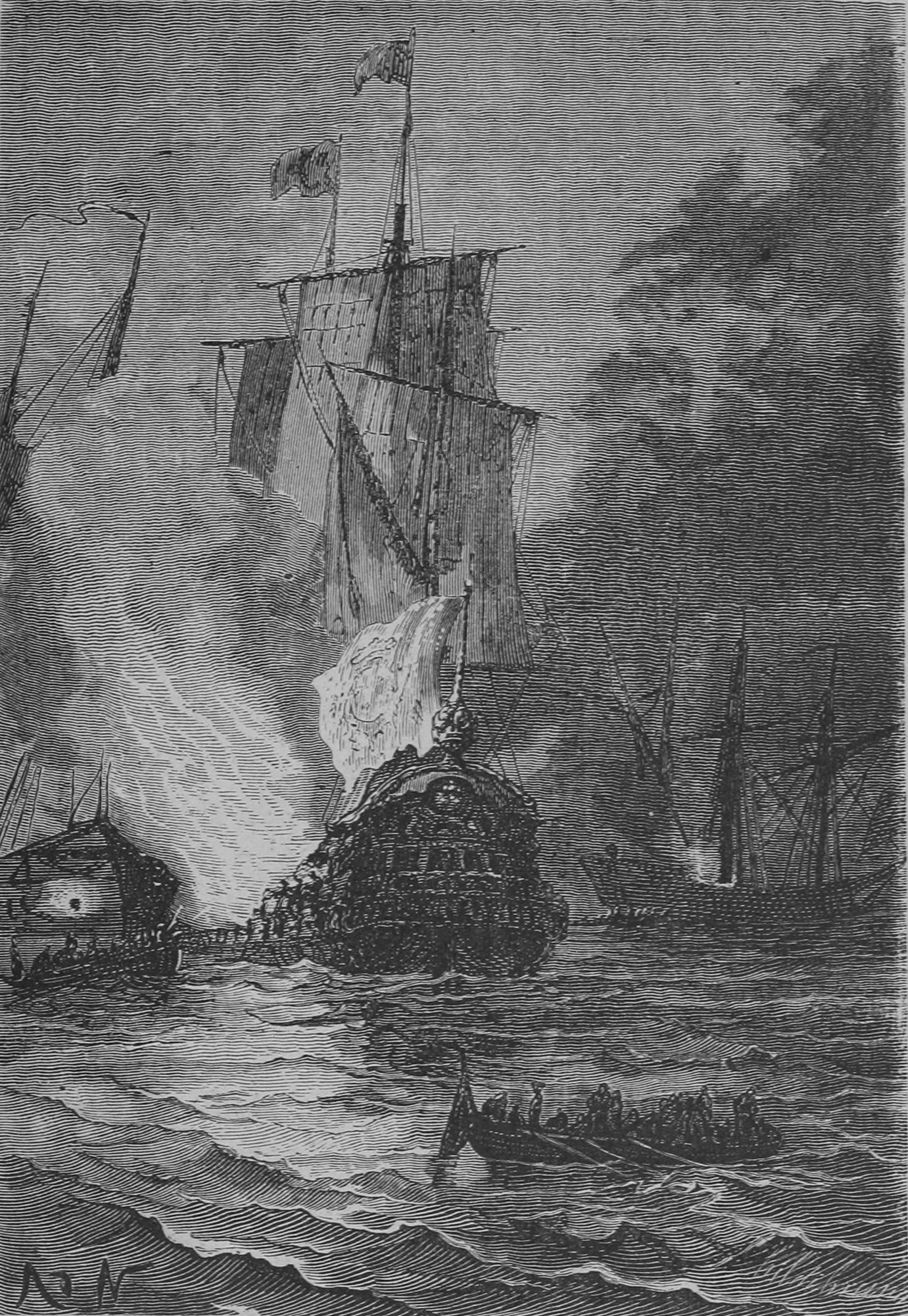Vigo Bay, Battle of, Spain, 1702
Enlarge text Shrink text- Eggenberger, D. Dict. of battles, 1967.
- Sanderson, M. Sea battles, 1975.
- Rande 1702 : arde o mar, 2002:t.p. (commemorative exhibition III centenary Battle of Rande ... Vigo)
- Wikipedia, May 16, 2008(Battle of Vigo Bay (or Battle of Rande))
The Battle of Vigo Bay, also known as the Battle of Rande (Galician: Batalla de Rande; Spanish: Batalla de Rande), was a naval engagement fought on 23 October 1702 during the opening years of the War of the Spanish Succession. The engagement followed an Anglo-Dutch attempt to capture the Spanish port of Cádiz in September in an effort to secure a naval base in the Iberian Peninsula. From this station the Allies had hoped to conduct operations in the western Mediterranean Sea, particularly against the French at Toulon. The amphibious assault, however, had proved a disaster, but as Admiral George Rooke retreated home in early October, he received news that the Spanish treasure fleet from America, laden with silver and merchandise, had entered Vigo Bay in northern Spain. Philips van Almonde convinced Rooke to attack the treasure ships, despite the lateness of the year and the fact that the vessels were protected by French ships-of-the-line. The French and Spanish fleet sought safety behind a boom with twin batteries. However, Allied marines captured the harbour batteries while an Allied ship broke the boom. The main Anglo-Dutch fleet then attacked the outnumbered and immobilized French fleet. The French surrendered six ships-of-the-line, and others were destroyed. The engagement was an overwhelming naval success for the Allies: the entire French escort fleet, under the command of François Louis Rousselet de Châteaurenault, together with the Spanish galleons and transports under Manuel de Velasco, had either been captured or destroyed. Yet because most of the treasure had been off-loaded before the attack, capturing the bulk of the silver cargo had eluded Rooke. Nevertheless, the victory was a welcome boost to Allied morale and helped persuade Peter II of Portugal to abandon his earlier treaty with France and join the Grand Alliance.
Read more on Wikipedia >
 Topic
Topic








